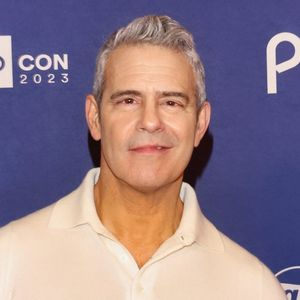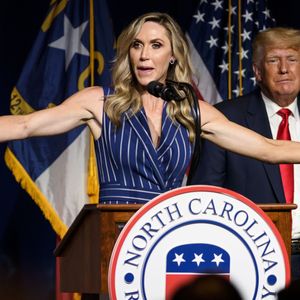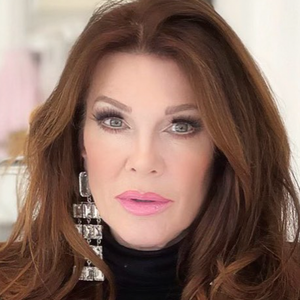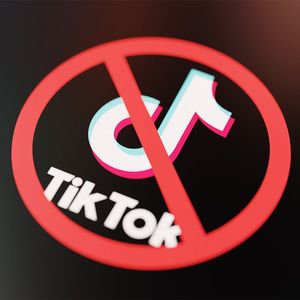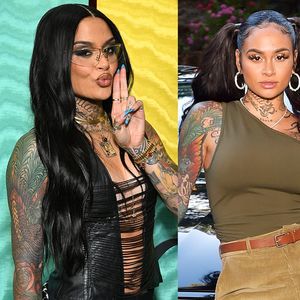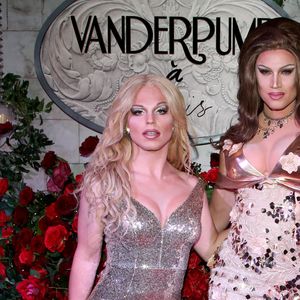
CONTACTStaffCAREER OPPORTUNITIESADVERTISE WITH USPRIVACY POLICYPRIVACY PREFERENCESTERMS OF USELEGAL NOTICE
© 2024 Pride Publishing Inc.
All Rights reserved
All Rights reserved
By continuing to use our site, you agree to our Private Policy and Terms of Use.
Here's my advice to all of you who are still broken up about Brokeback Mountain's loss at the Oscars. Head to your local gay bookstore and shell out a few bucks for something besides porn. As it turns out, Jack and Ennis weren't hatched during a pitch meeting at the Ivy. They first came to life in the pages of The New Yorker, a magazine driven almost entirely by words alone.
In some sense, the literary origin of Brokeback--and the highly visible marketing of Annie Proulx's short story, on which it is based--has masked a spreading indifference to the written word among gay men. Gay op-ed pages abound with condemnations of the formulaic treatment we receive on television sitcoms, but any defense of the gay bookstore and the much wider array of representations it offers is weak at best. At worst, we get dismissive essays from successful gay authors who seem determined to disregard the bookstores that helped give them their start.
Rather than spending all of our energy trying to guilt-trip the media into representing us more diversely, it's time we put our passion and our dollars behind the nuanced representations of gay men that have already been written.
Don't think you're part of the problem? Here's a test. Which of the following do you recognize? Mack Friedman, Richard McCann, Barry McCrea, Vestal McIntyre, Sulayman X, Aaron Hamburger, Dennis Cooper, Harlan Greene, Thorn Kief Hillsbery, Keith McDermott, Patrick Ryan, Blair Mastbaum, Bart Yates, K.M. Soehnlein, Michael Lowenthal, Eric Shaw Quinn, John Morgan Wilson. This is but a small sampling of current writers whose work collapses stereotypes of gay men. (Here's hoping you're already familiar with living gay literary lions such as Alan Hollinghurst, Felice Picano, Andrew Holleran, Edmund White and others.)
If big gestures are more your style, get out your checkbook and spend a paltry $25 to join the struggling Lambda Literary Foundation--sponsor of the Lammy awards--the only organization dedicated to increasing the visibility of LGBT writers.
All of that's pretty easy. The hard part will be letting go of excuses like "I try to read before bed but I fall asleep"--to which I'm always tempted to reply that I hope you don't read the CNN news ticker while on the treadmill. Patronizing your local gay bookstore and setting aside 20 minutes each night to read is not too much to ask when the next gay-themed film to take American culture by storm may be at stake.
Otherwise, we had better prepare ourselves for an endless slate of happy-go-lucky sex comedies firmly rooted in the "taming the go-go boy" school of storytelling.
Brokeback is just one of many recent successful films that are faithful adaptations of written source material. In Brokeback's case, it was the short story's impact on several well-placed straight filmmakers that ultimately carried it toward the big screen.
That's because gay men have been remiss in forming a potent segment of the book-buying public with the power to nudge gay titles into the Hollywood pipeline. If we truly want Hollywood to present us with representations of gay men that challenge and even devastate us, this situation needs to change. And why shouldn't it? After all, we each have the power to change it before bedtime tonight.
Want more breaking equality news & trending entertainment stories?
Check out our NEW 24/7 streaming service: the Advocate Channel!
Download the Advocate Channel App for your mobile phone and your favorite streaming device!
From our Sponsors
Most Popular
Here Are Our 2024 Election Predictions. Will They Come True?
November 07 2023 1:46 PM
Meet all 37 of the queer women in this season's WNBA
April 17 2024 11:24 AM
17 Celebs Who Are Out & Proud of Their Trans & Nonbinary Kids
November 30 2023 10:41 AM
Here Are the 15 Most LGBTQ-Friendly Cities in the U.S.
November 01 2023 5:09 PM
Which State Is the Queerest? These Are the States With the Most LGBTQ+ People
December 11 2023 10:00 AM
These 27 Senate Hearing Room Gay Sex Jokes Are Truly Exquisite
December 17 2023 3:33 PM
10 Cheeky and Homoerotic Photos From Bob Mizer's Nude Films
November 18 2023 10:05 PM
42 Flaming Hot Photos From 2024's Australian Firefighters Calendar
November 10 2023 6:08 PM
These Are the 5 States With the Smallest Percentage of LGBTQ+ People
December 13 2023 9:15 AM
Here are the 15 gayest travel destinations in the world: report
March 26 2024 9:23 AM
Watch Now: The Daily
Trending stories from our video partner Advocate Channel.
For more videos and shows go to advocatechannel.com.
Trending stories from our video partner Advocate Channel.
For more videos and shows go to advocatechannel.com.
Latest Stories
Megan Rapinoe, Sue Bird, and more urge NCAA to stand up for trans inclusion
April 24 2024 8:00 AM
Over 90% of trans youth live in states pushing anti-trans legislation: report
April 23 2024 10:08 PM
George Santos pulls out of New York congressional race
April 23 2024 7:04 PM
Biden will hammer Trump over abortion bans in Florida speech
April 23 2024 5:00 AM
Tristan Snell, who brought down Trump University, sees conviction in hush money case
April 22 2024 7:36 PM































































